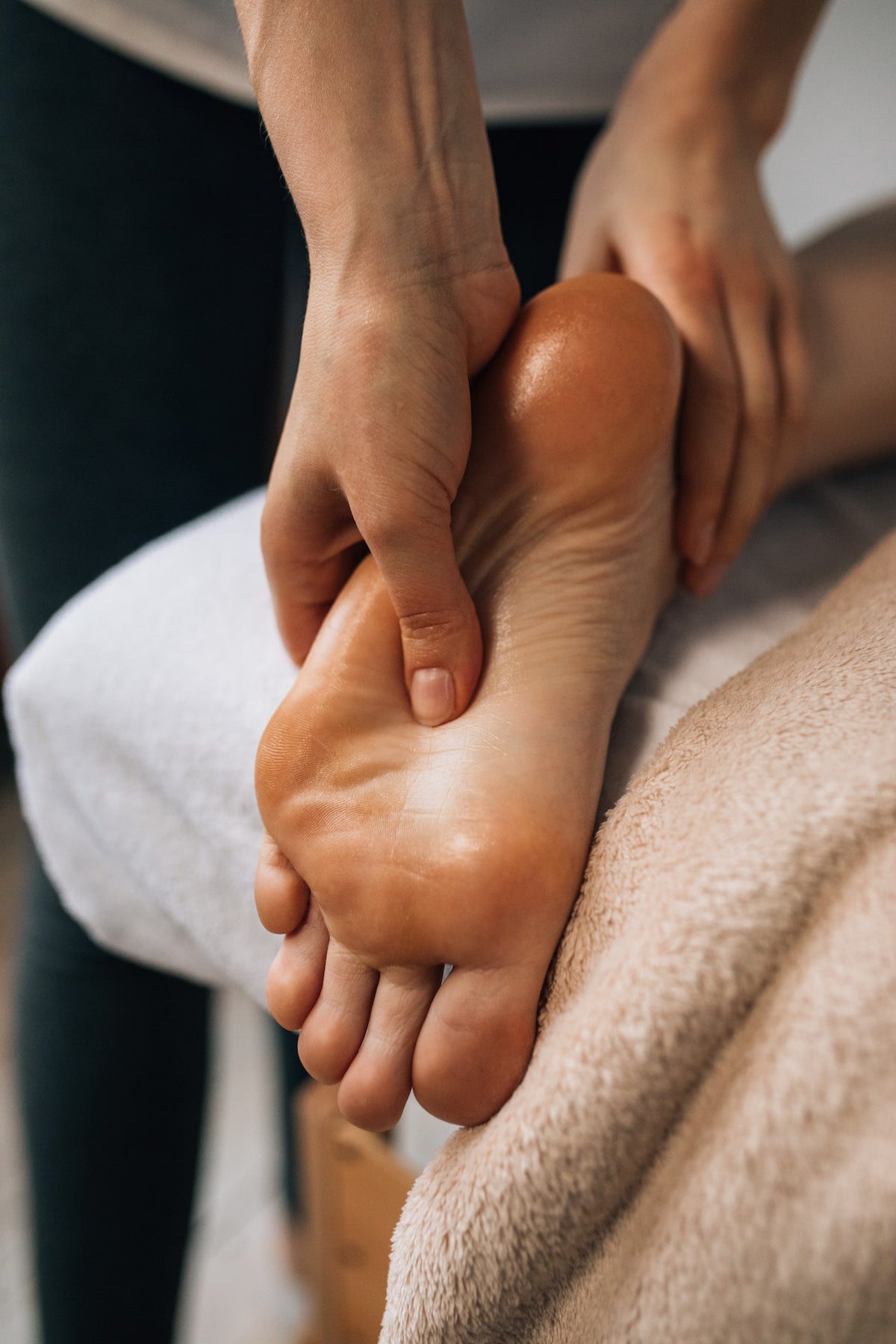
Foot cramps are a common, and often annoying, affliction that can last anywhere between a few seconds to many minutes.
And, while for most people one or two occasional foot cramps are normal and nothing to worry about, if foot cramps are frequent they may start affecting your quality of life.
Up to 50-60% of adults, 7% of children, and 40% of pregnant women experience foot cramps.
But, just what causes foot cramps? In this article, we will outline the most common reasons behind these unwelcome and painful spasms.
Foot cramping can be caused by you not wearing the right shoes.
If your shoes tend to run too small and your toes are constricted, you may be setting yourself up for foot cramps.
Also, if your footwear is too large and causing the shoe to constantly rub against your toes, this can cause the same problems.
Have your feet professionally sized at a shoe store to see if a change of shoes may be your ticket to fewer foot cramps.
Dehydration can lead to your muscles and organs not getting sufficient water to work properly.
In the feet and surrounding muscles, this may cause areas to spasm, causing a painful foot cramp.
Try drinking an adequate amount of water every day to see if your leg or foot cramp frequency reduces.
Magnesium and potassium deficiencies can lead to excessive foot cramping.
Ask your doctor to measure your levels of these necessary electrolytes to ensure you are in a good range.
If your levels come back low, look up magnesium and potassium-rich foods to add into your daily diet, or find them in supplement form to ensure you are getting enough.
Deficiencies of B-Vitamins long term may cause nerve damage which leads to more frequent leg and foot cramping.
A simple test of the common B-Vitamins will help your doctor identify any deficiencies and recommend food sources or supplements to get your levels up to normal.
While exercise is healthy and necessary to keep your body in optimal shape, overdoing it may cause muscles to tighten and cramp up.
Start slow when adding in a new exercise routine, and stretch properly to make sure you are limbered up before each workout session.
Over-exertion-induced cramps are more commonly seen in those training for rigorous marathons or putting in hours of training each day, so this is more on the uncommon side and should not dissuade anyone from approaching a moderate workout routine.
Being on your feet 8 hours a day on hard surfaces may lead to leg and foot cramps.
If your job requires a lot of standing, look into padded mats that you can stand on to take some of the pressure off of your feet, take more frequent breaks, or look into compression stockings to encourage good circulation.
If your feet are not getting adequate amounts of blood flow bringing them oxygen and nutrients, they could tend to cramp up more often.
Encourage good circulation by increasing your exercise, stretching regularly, and avoiding sitting or standing in one position for too long.
Walking desks may be an excellent option for those with frequent leg or foot cramps and work desk jobs.
Certain medications may come with the side effect of leg or foot cramps due to increasing water losses or changing the electrolyte balance.
Medications that may cause leg or foot cramps:
If you are having chronic foot or leg cramps and you are taking medications on this list, speak with your doctor about if there is an alternate medication with fewer cramping side effects.
For many women, they tend to have the worst cramping episodes while they are pregnant.
This may be due to rapid weight increases and pressure on their feet, dehydration, or changes in electrolytes from the rapidly growing child.
Making sure you are taking your prenatal vitamins, staying properly hydrated, and massaging and resting your feet as needed may help stave off annoying foot cramps.
Certain health issues may put you at a higher risk for having leg or foot cramping including:
Making sure that you are taking medications regularly and making lifestyle changes to help improve these underlying conditions may help lessen the number or severity of the related leg or foot cramps.
Learn more about PodiVite, a supplement from ZenNutrients.com.
Podivite is a multivitamin formulated to help support healthy feet, nerves, joints, and ligaments.*
*These statements have not been evaluated by the Food and Drug Administration. These products are not intended to diagnose, treat, cure or prevent any disease.